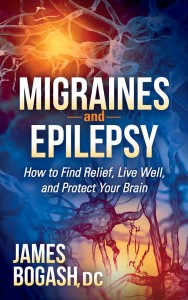
Too few seizure patients make good choices
There are natural remedies for seizures that have shown strong effectiveness in medical studies; the same types of studies that are used to document the effectiveness of the drugs that are used to treat seizures.
In other words, natural approaches to helping seizures like good sleep, omega 3 fatty acids, vitamin D, the ketogenic diet and exercise have just as much support behind them as do the drugs used to treat epilepsy. But for some reason these approaches take a back seat to medications.
They are used as a last-ditch-backup-plan effort. And even then sometimes only after you ask your neurologist about them. There is this general bias that, if something is not a drug then it’s not really going to be as effective or powerful.
This bias extends throughout all specialties. How many oncologists talk to their patients about dietary changes and exercise? In my experience all too few. And this is despite many studies that find that dietary factors can double survival rate (good choices) or lower life expectancy (bad choices).
Given the many lifestyle choices that can have an active role and benefit in seizure severity, frequency and response to treatment, these are choices that every epileptic should be embracing.
Right?
I mean—it’s your BRAIN we’re talking about here. Not the pinky toe on your left foot or the nail of your index finger.
Which makes the results of this particular study a little bit more disturbing. In it, researchers looked at how many people with seizures where living a lifestyle that includes some of these simple recommendations. Here’s what they found:
- About 22% of adults with active epilepsy smoked.
- Only 35% of adults with active epilepsy met recommended physical activity guidelines.
- Only 40% with active epilepsy reported walking for at least 10 min during the last 7 days.
- Only 50% with active epilepsy reported sleeping 7 or 8 hours each day.
These are all brain-healthy behaviors that have been shown to have an impact on either the severity or frequencies of seizures or the response to anti-seizure medications. Despite this, these simple behaviors are performed at a way higher rate than they should be in people with epilepsy. And at a worse rate then the general population who do not experience seizures.
Maybe some of these percentages are due to the seizures themselves. Maybe epileptic patients are sleeping as well because of medications. Maybe they are unable to exercise because of the danger to injuring themselves or because they are too sore from the grand mal they had yesterday. And I’m sure that is the case for some of the people questioned for this study.
But smoking? There’s no excuse to make a distinct effort at quitting a behavior that is literally destroying your brain all by itself, but then is making your epilepsy worse.
There is the chance that this is due a lack of emphasis on the part of the treating physician in regards to how important these choices are for overall brain health, especially in someone who is already challenged in the brain-health department.
If you are epileptic, it is up to YOU to protect your brain in every way possible. It is up to YOU to educate yourself on ways to do so (and, if I may add, checking out my Migraines and Epilepsy book would be a good idea to start you along your way). And most importantly, it’s up to YOU to adopt these brain-healthy behaviors so that you can better control or even eliminate your seizures for a lifetime.
